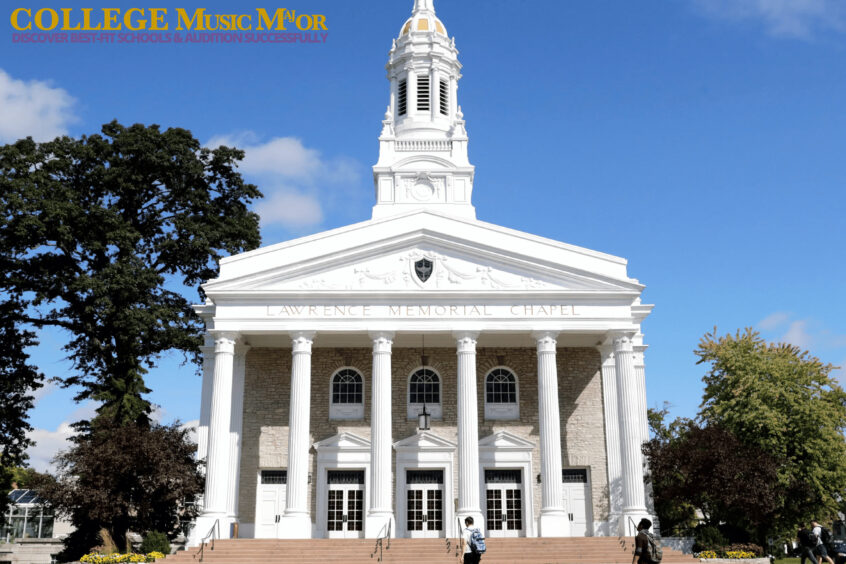Conservatory, University, or Liberal Arts College?
As an aspiring musician, uncertainty and ambiguity can riddle the path to choosing the right educational institution. The choice between a university, a liberal arts college, and a conservatory can significantly impact your educational journey and future career. This comprehensive guide aims to help you navigate these choices while providing expert guidance and personalized support.
Understanding the Choices
The Trio of Choices
Contrary to popular belief, you have more than two choices when it comes to music education. Indeed, there are three primary types of institutions to consider:
- Pure conservatories like the New England Conservatory of Music, The Juilliard School, or the San Francisco Conservatory of Music.
- Liberal arts colleges like Ithaca College, Harvard, and many smaller universities offer performing arts programs.
- Hybrid institutions, which are liberal arts colleges that house their own conservatories, some highly regarded, like New York University’s Tisch School of the Arts or the University of Michigan’s School of Music, Theatre and Dance.
Each of these options has its unique features, advantages, and drawbacks. Your choice would be influenced by your career goals, personal preferences, and educational aspirations.
Conservatory: Intensive Artistic Focus
A conservatory is primarily focused on one thing — the chosen art form. For instance, a music conservatory would be ideal if you dream of immersing yourself thoroughly in music. However, if you wish to study primarily music but also want exposure to other fields like sports, science, or business, a liberal arts school’s music department would be a better fit.
University vs. Liberal Arts College: Wider Academic Scope
Universities and liberal arts colleges offer more comprehensive education, allowing students to explore various fields along with music. If you wish to enjoy a broader college experience, complete with football games, politics classes, or foreign language studies, a university or liberal arts college would be more suitable.
The Dilemma of Focus: Wide or Narrow?
The Conservatory Approach
Conservatories are characterized by their singular focus on the performing art in question. Catherine Weidner, chair of the Department of Theatre Arts at Ithaca College, contrasts the two approaches: “Though conservatories offer degrees (BFA’s usually), they may not provide a liberal arts education. Some students (and parents) may want a more comprehensive college experience, and others choose a singular-focus conservatory approach.”
The Liberal Arts Approach
On the other hand, a liberal arts education provides a broader scope. This approach is best for those who want to balance their passion for performing arts with other fields of study. The choice between a focused conservatory approach and a liberal arts education depends on the student’s individual goals and preferences.
Maintaining High Standards
The Blurring Lines
Over the years, the distinction between conservatory and university programs has blurred. Travis J. Cross, music department vice chair at the UCLA Herb Alpert School of Music, observes, “My sense is that conservatory training programs and performance programs within university music schools are more alike today than they are different.”
The Common Goal
Whether you choose a conservatory or a university program, both aim to uphold the highest performance standards. Cross elaborates, “In the UCLA Herb Alpert School of Music, we seek outstanding musicians dedicated to their art and craft… We believe their growth as scholars and thinkers enhances their growth as musicians–and their future employment possibilities.”
The Types of Degrees

Bachelor of Music (B.M.)
The Bachelor of Music (B.M.) degree is the primary undergraduate program for most conservatories and ‘conservatory-style’ departments within universities. Students undertaking this degree will take the majority of their courses in music while also completing liberal arts or general education college requirements.
Bachelor of Arts in Music (B.A.)
Many college music programs offer a Bachelor of Arts in Music (B.A.) rather than the Bachelor of Music. In this degree, a significant portion of the required credits will be in music, with the remainder coming in general education, liberal arts, electives, or a second major. The B.A. can provide the room to add a second major.
Dual Degree Programs
Many conservatory programs offer dual degree programs where students can earn two degrees, one in music and one in another field. These programs are ideal for students who are committed to pursuing a life in music and want to explore other fields.
The Choice: Total Commitment vs. Exploration
Choosing between a conservatory and a university or liberal arts college often comes down to a student’s commitment to their chosen art form. As Alex Powell of the New England Conservatory of Music advises, “A student needs to be fully committed to pursuing music to thrive in a conservatory.”
On the other hand, if a student is still exploring multiple interests or unsure about their steadfast commitment to a musical career, then a Bachelor of Arts in Music or a dual degree program might be the better option.
The College Experience: Comprehensive vs. Specialized
The overall college experience also plays a significant role in your decision. For those who desire a comprehensive college experience, complete with sporting events and a broader academic focus, a university or liberal arts college is the preferred choice.
Conversely, a conservatory could be the ideal choice if you’re comfortable foregoing some aspects of the traditional college experience for a more immersive and intensive focus on your art.
The Admission Process: Academics vs. Artistic Merit
Admissions standards at conservatories are often more flexible, emphasizing artistic merit more than academic performance. Top conservatories generally do not require SAT or ACT scores and do not have a minimum GPA requirement.
On the other hand, university music programs may require standardized test scores and a minimum GPA, although these requirements are often less stringent than for non-music majors.
Scholarships and Financial Aid
The availability of scholarships often depends on the size and type of institution. Smaller institutions like conservatories or liberal arts colleges often provide better scholarship opportunities for undergraduate students. Larger universities generally offer scholarships and assistantships primarily to graduate students, although undergraduate music students can also receive substantial scholarships.
Making the Decision: Criteria to Consider
David H. Stull, president of the San Francisco Conservatory of Music, suggests that students generally make decisions based on four criteria: the faculty they will study with, the size of the financial aid package, the location, and the program’s character and reputation.
The Bottom Line
The choice between a university, a liberal arts college, and a conservatory is profoundly personal and depends on your individual goals, preferences, and circumstances. As Stull puts it, the goal for any student should be to choose an environment “in which they learn how to teach themselves.”
Whether you choose a conservatory, a university, or a liberal arts college, the ultimate aim should be to achieve your dream of attending a top music college.


The college music admissions process is complicated and frustrating maze. Fortunately, we're expert maze runners at College Music Major who can help you successfully navigate your way through it.
We offer a range of affordable options that include comprehensive packages with Doctor Fish serving as your personal guide.
Our one-of-a-kind online course DIY Guide, is a great, cost-friendly option. It gives you the inside scoop on:
- √Types of music schools
- √Types of music degrees
- √Finding best-fit schools
- √Audition process
- √Portfolios & prescreening videos
- √Applications & essays
- √Applications & essays


